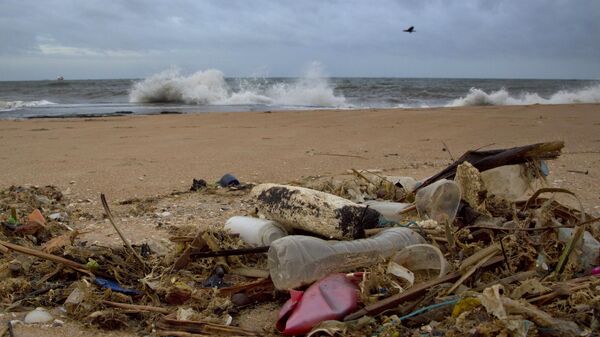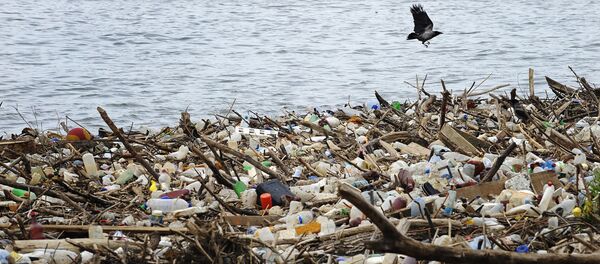Scientists from Britain's University of Portsmouth and the US Department of Energy's National Renewable Energy Laboratory (NREL) mistakenly produced the enzyme while studying a natural enzyme discovered a few years ago in a Japanese waste recycling center.
According to a Tuesday press release by the University of Portsmouth, the natural Japanese enzyme, Ideonella sakaiensis 201-F6 (also known as PETase enzyme), can break down polyethylene terephthalate, PET, which was patented as a plastic in the 1940s.
While the researchers were studying the PETase enzyme, they accidentally engineered another enzyme that broke down PET plastic even better than the natural enzyme they were researching in the first place.
"We hoped to determine its structure to aid in protein engineering, but we ended up going a step further and accidentally engineered an enzyme with improved performance at breaking down these plastics," said NREL's lead researcher Gregg Beckham.
"Serendipity often plays a significant role in fundamental scientific research and our discovery here is no exception," said John McGeehan of the University of Portsmouth, who was also involved in the study.
Using a synchrotron particle accelerator, the researchers, in collaboration with Diamond Light Source in the UK, used intense beams of X-rays 10 billion times brighter than the sun to view the individual atoms making up PETase.
"The Diamond Light Source recently created one of the most advanced X-ray beamlines in the world and having access to this facility allowed us to see the 3-D atomic structure of PETase in incredible detail. Being able to see the inner workings of this biological catalyst provided us with the blueprints to engineer a faster and more efficient enzyme," McGeehan explained.
The researchers then worked with computational modeling scientists at the University of South Florida and the University of Campinas in Brazil and found that PETase has a similar structure to cutinase, another enzyme that can also degrade PET, but has several different features that also allows it to break down man-made polymers in additional to natural polymers.
The researchers then mutated PETase so that it was more like cutinase. The resulting PETase mutant was found to be better at degrading PET than natural PETase.
The findings were published Monday in the Proceedings of the National Academy of Sciences journal. However, the researchers are still working on further modifying the PETase mutant so that it can break down plastics at an ever faster rate, according to the University of Portsmouth.
"Although the improvement is modest, this unanticipated discovery suggests that there is room to further improve these enzymes, moving us closer to a recycling solution for the ever-growing mountain of discarded plastics," McGeehan noted, according to the University of Portsmouth press release.






